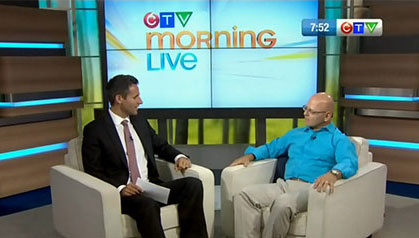
Make it About Memories, Not Money
- Grand Beach. This huge stretch of soft sand beach and sand dunes is only a one-hour drive from Winnipeg. This beautiful beach has been listed world-wide as an experience to be had and so many locals have yet to make the trip. It’s a great getaway for a day and offers camping, motels and cottage rentals for longer stays.
- Birds Hill Park. Located a very short drive from the city, this vastly under-utilized year round provincial park offers a slew of activity choices. Paved and natural trails allow for biking, rollerblading and hiking. There are horse stables and quite often Polo games are available for viewing. There is a campground with choices of basic, electrical or full service camping and a beach with food and beverage options.
- Little Limestone Lake. A little longer trip, but the closest to the Caribbean you can get when you don’t live near the ocean. It is the biggest and best marl, colour-changing lake in the world.
- Whiteshell Provincial Park. Part of the Canadian Shield landscape about 1.5 hours east of Winnipeg, is a treasure trove of natural resources. This park is filled with wildlife as the wilderness is quite undisturbed. If you’re looking to spend time at the lake, there are beaches, waterfalls, rapids, diving, sailing, swimming and waterskiing as just a few choices.
- Assiniboine Zoo. An absolute gem located right within the city and one of the most beautiful urban parks the zoo offers a plethora of experiences for young and old. Right now you have the chance to see the incredibly endangered snow leopards. The two little cubs are just settling into their new enclosure and are still awaiting their names. Included in the regular admission this summer, the new attraction Xtreme BUGS is being offered for a limited time. One of the biggest attractions, literally, is the polar bears whom you can see in action without travelling to the North.
This is such a small sampling of the destinations available in Manitoba. If you love to travel and experience the outdoors, this is a great place to do it without having to hurt your wallet. Now, get out there and experience all there is to do in Manitoba!
























